Many parents would attest that raising kids is hard work and undeniably expensive, too. One of the biggest costs, especially in the early years, is childcare, which some parents need to lower and choose to turn to friends or family for. While in most cases this is nothing unusual or wrong, sometimes parents can start taking advantage of people who are willing to help out.
Like it happened to this teen, who agreed to babysit their sibling’s kids during the summer and was only paid $20 for their efforts. This continued for a few more years, until the teen finally gathered the courage to speak up.
Parents who need to lower childcare costs might turn to family or friends for babysitting

Image credits: prostooleh (not the actual photo)
As did this woman, who took it too far and started demanding free babysitting from her sibling
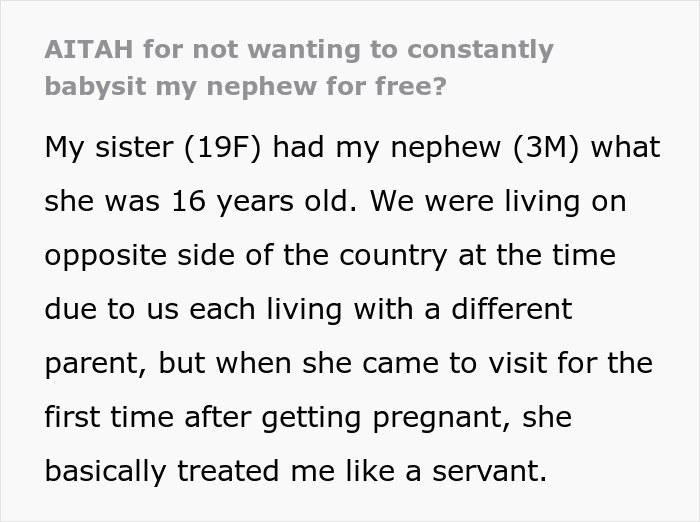

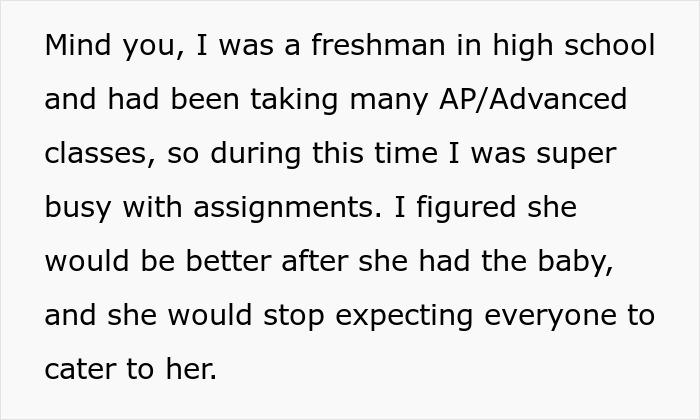
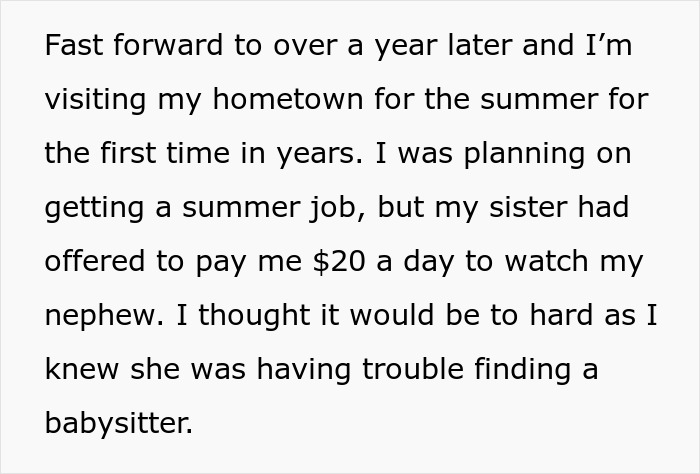
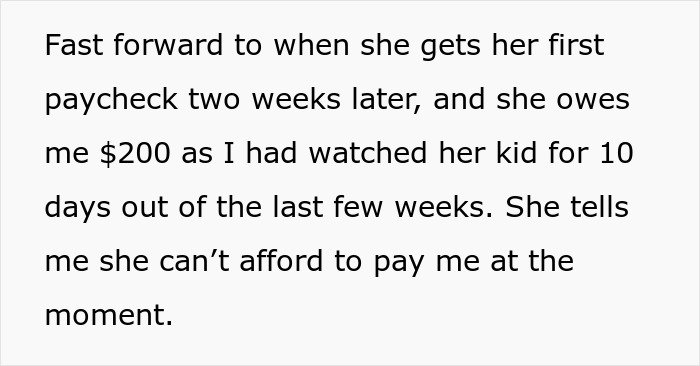

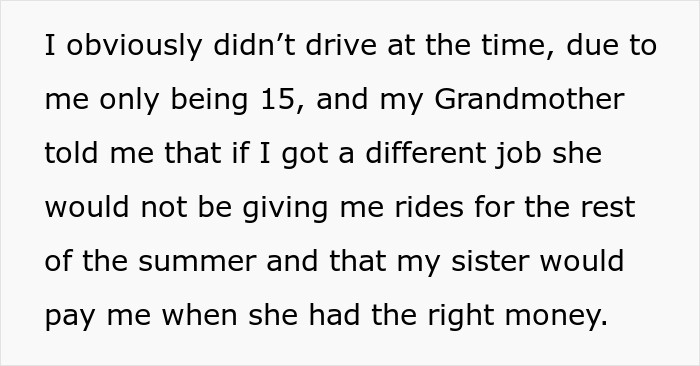

Image credits: yanalya (not the actual photo)



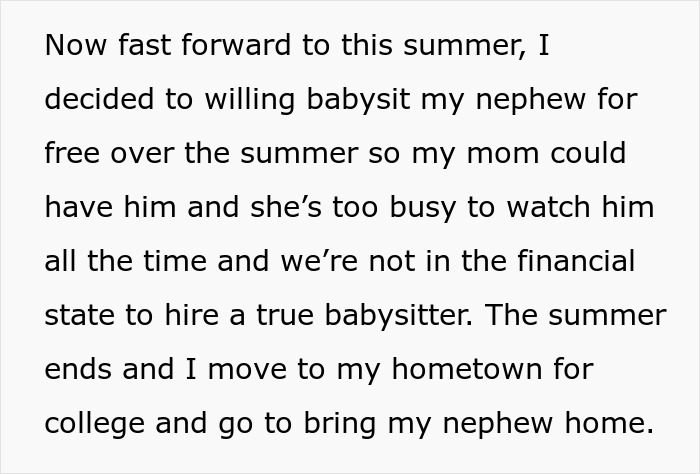

Image credits: EyeEm (not the actual photo)


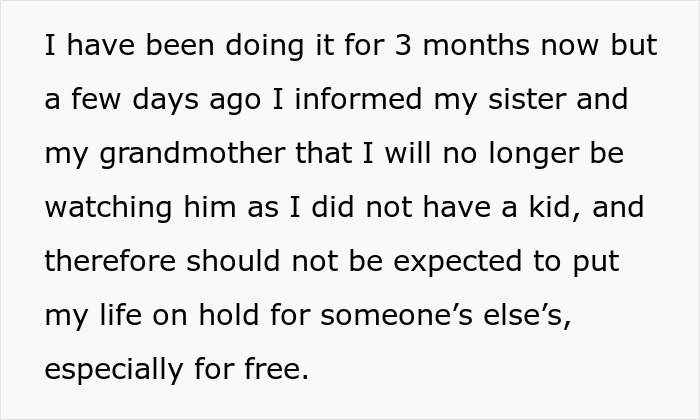


Image credits: EyeEm (not the actual photo)
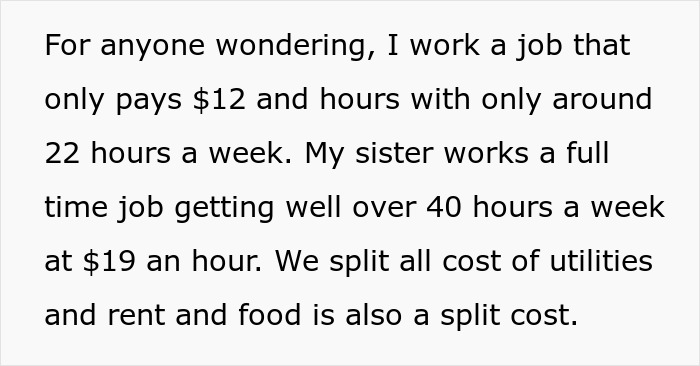

The original poster later answered a few questions readers had
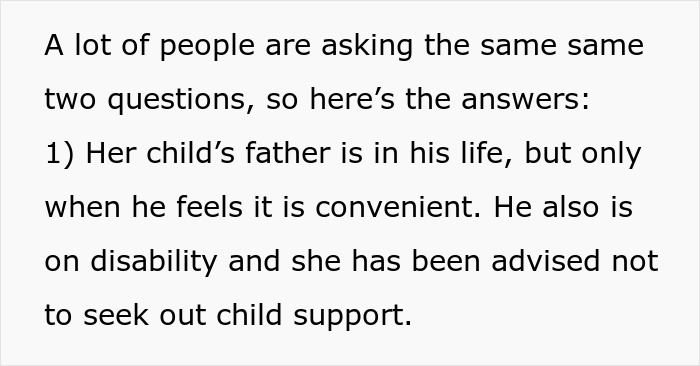

Image credits: Grand_Sector4130
Parents may not realize they aren’t appreciating the help enough
Childcare puts a significant financial strain on families, with parents saying that they spend 22% of their household income on childcare. This number might not seem that exponential, but according to the Department of Health and Human Services standard, childcare is considered affordable when it doesn’t cost more than 7% of a family’s income.
“The cost of child care today has parents fighting an unrelenting battle they stand no chance in winning,” says Sean Lacey, general manager for Care.com. “They’re being stretched beyond their limits—cutting back spending on essentials, taking on extra work or even stepping away from their careers to afford care for their kids.”
To catch some relief, parents who are fortunate enough may turn to their friends or family. But while doing so, some forget that they can’t expect their family members to babysit whenever they need to or be appreciative enough, which can cause resentment and conflicts down the line.
“Parents in the modern day are often overwhelmed and exhausted, they may not have realized they aren’t appreciating the help enough. But the family member also needs to manage their expectations of what they see as being appreciated and communicate this clearly. Try to pick a time when the parent is as least stressed and tired as possible!” advised parenting coach and founder of Personalised Parenting Solutions, Katherine Elizabeth, in a previous interview with Bored Panda.
“Whilst I absolutely believe it takes a village to raise a child, and we are a species that thrives on community, parents are fully responsible for their children at all times. They should see it as a favor and be grateful— just enough for the family member to feel valued and to let them know how helpful it is,” she explained.
“It’s perfectly okay to say no, or to say yes with limits”
To avoid underappreciation, resentment, and conflicts when family members help out parents with childcare, boundaries are important. However, it’s important to set them in a healthy way without corroding any relationships.
“Healthy boundaries are all about being clear and kind. That means sharing what you’re comfortable with—how often you’re able to help, what kind of notice you need, and what your energy allows. It’s perfectly okay to say no, or to say yes with limits. The key is to communicate those boundaries early and respectfully. Strong families thrive on mutual respect—not obligation—and when everyone’s needs are acknowledged, relationships tend to thrive,” explained Catherine O’Brien, licensed marriage and family therapist and author at Happy With Baby, in a previous interview with Bored Panda.
As O’Brien mentioned, declining a babysitting request is completely acceptable, it just has to be done in a compassionate manner. To help practice this, she suggests trying the Gottman Method’s “soft startup” strategy.
“It’s a way to begin a tough conversation with kindness and clarity. You might say something like, ‘I care so much about you and the kids, and I truly want to be supportive. Right now, though, I just can’t take on babysitting. But I’d love to help brainstorm other options together,’” O’Brien advised.
“This kind of approach keeps the relationship intact while gently asserting your boundary. It’s also important to remember that many parents are under a lot of pressure—so even just offering emotional support or helping them think through alternatives can make a meaningful difference,” she concludes.
Readers seemed to firmly support the original poster

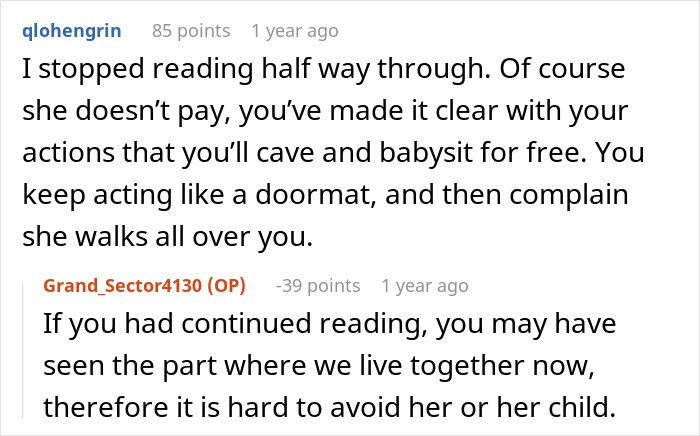

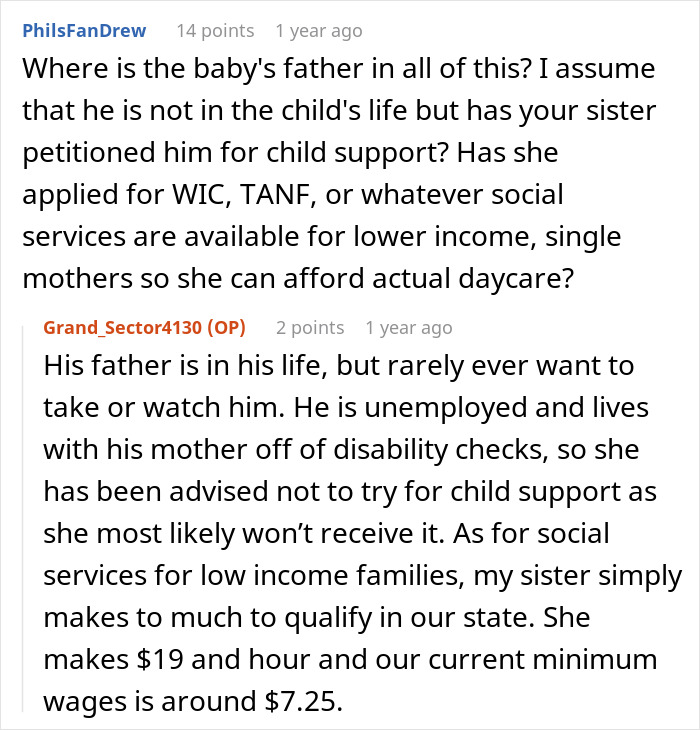
Saying it’s not their fault



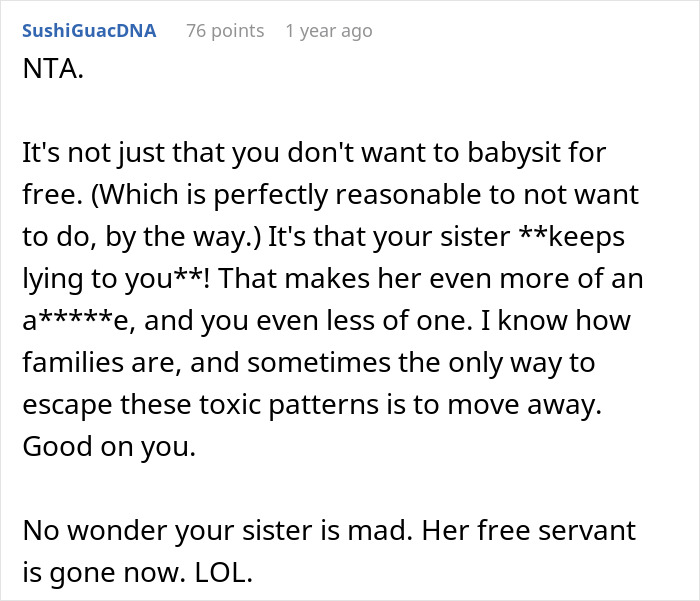
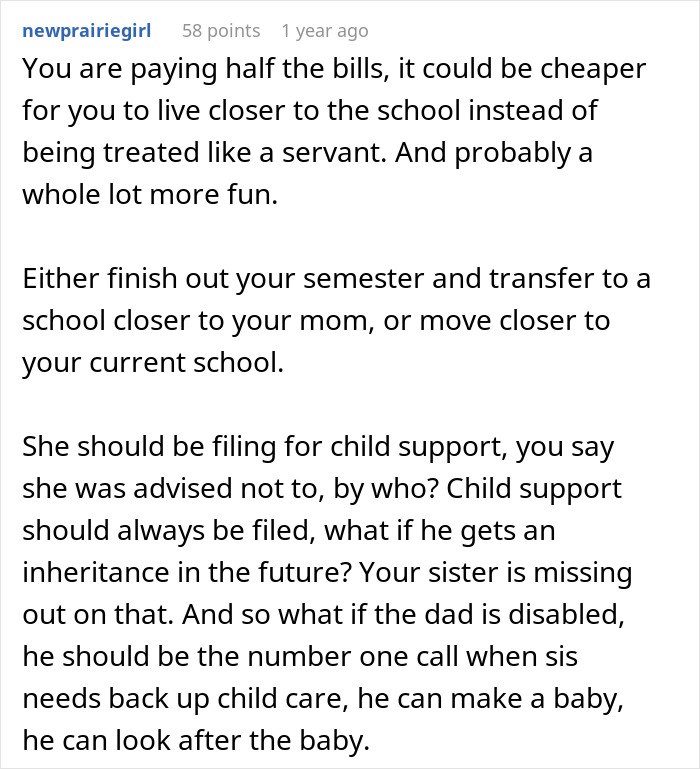

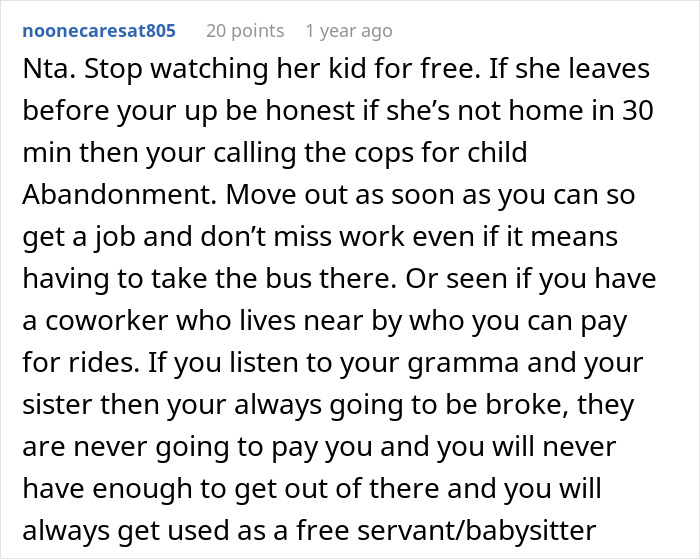

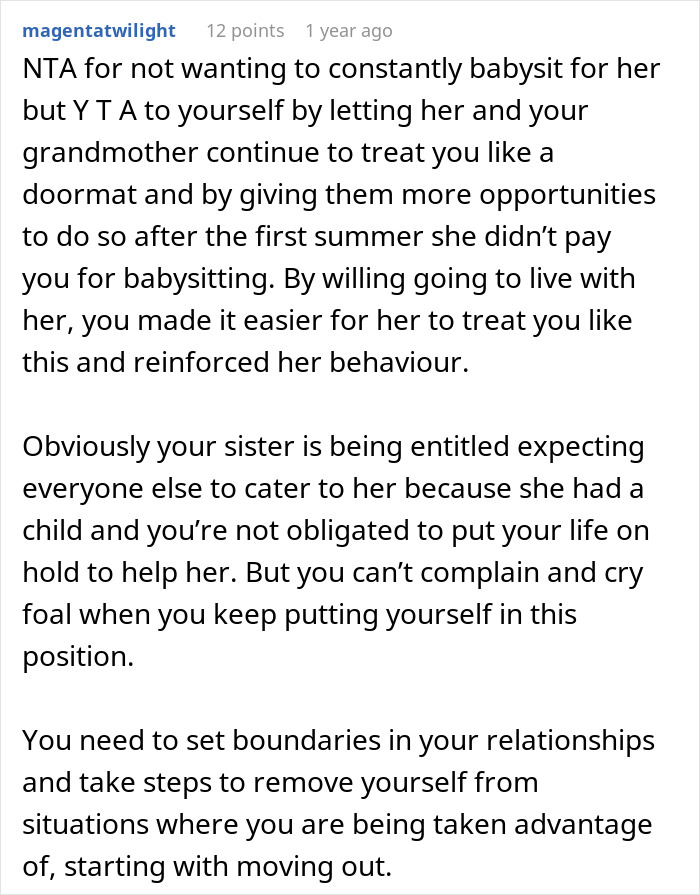

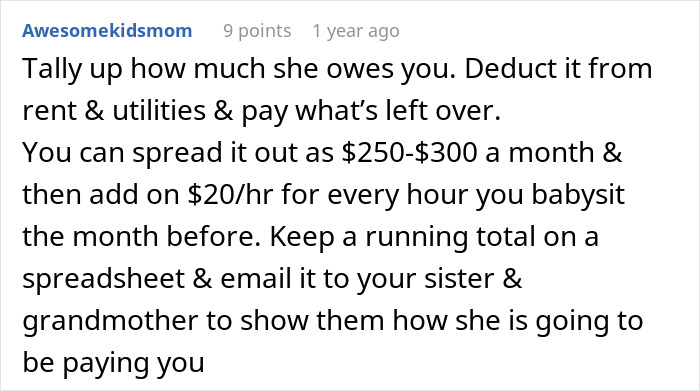


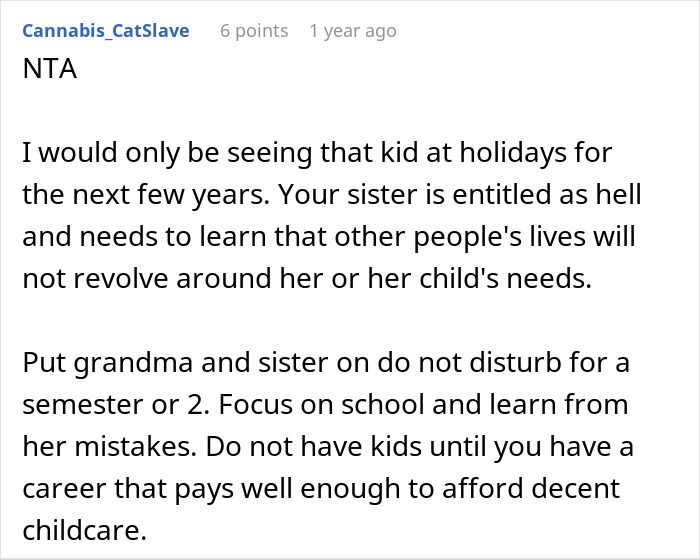

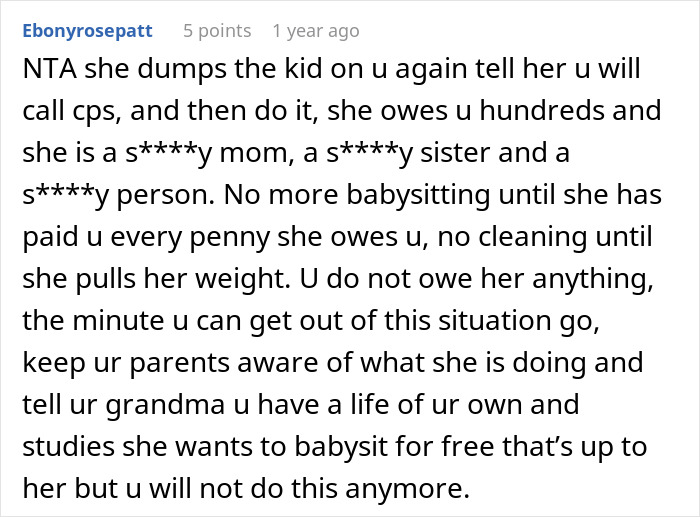
from Bored Panda https://ift.tt/hxlB9mw
via IFTTT source site : boredpanda